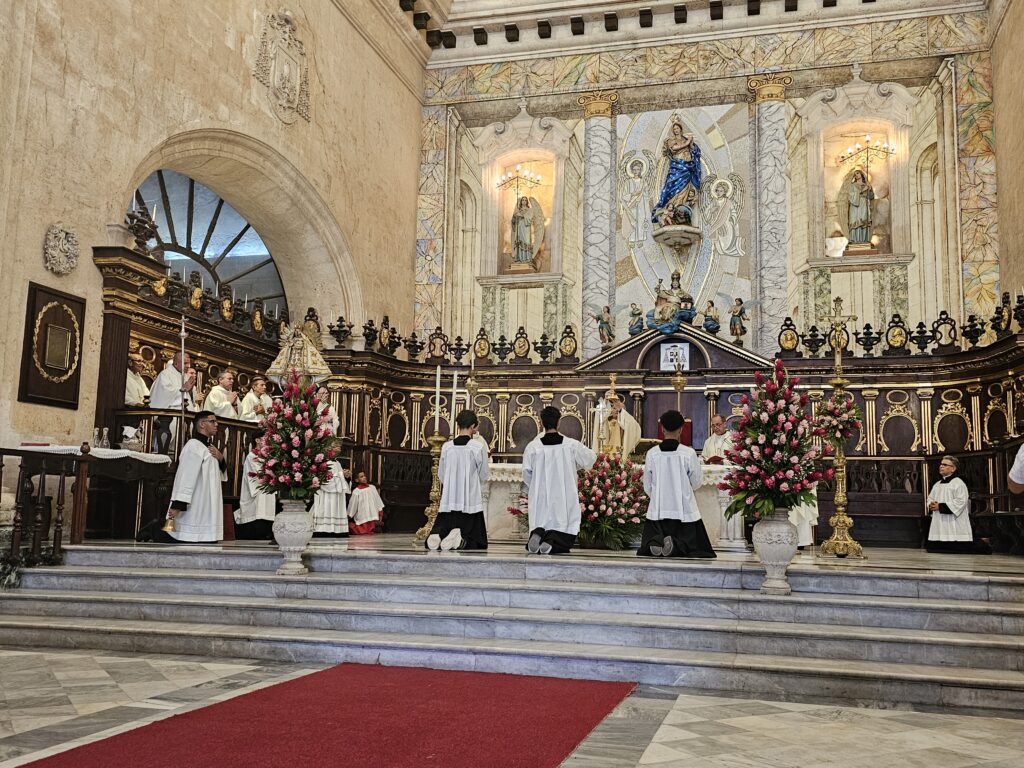
Cuba’s complexities: It IS complicated
Back from Havana after a few short days visit with my “Cuba mentor” to celebrate the 25th anniversary of the priesthood of a friend, it is more evident than ever that Cuba’s reality(ies) is (are) in-your-face, yet excruciatingly challenging to wrap your head around.
Problems are plentiful. Solutions are few and far between. Opinions are a-dime-a-dozen.
In both sides of the Florida Strait political polarization kills opportunities for consensus. Extremism rules the day. Wanna-be kings exploit. Bad power perpetuates worse power. And people hurt.
In Havana the contrast is everywhere evident:
- The stench of trash piles on many streets is overwhelming. The smell of fresh brewed coffee in new coffee shops entices.
- The crumbling buildings are everywhere. New hotels are sprouting up like weed.
- The beggars beg. The children play.
- The people pretend to work. The government pretends to pay.
- The beat-up 57 Chevy shrugs along. The spanking new 2026 Mercedes hums along.
- Lights going out is the norm all over the island. With the exception of touristic areas where lights shine ghostly brightly in empty spaces and places.
- Streaming of the internet just became prohibitively expensive for many. But access to it remains robust.
- Food scarcity is a real thing. Yet local restaurants flourish.
- Wages and pensions are dismal. Yet money can buy you (almost) anything.
- You may need to bring your own medication to your operation. But (albeit minimal) health care is universal.
- The theater stage is being eaten by termites. But art education – and all education – is free.
- TV offerings are slim. Thus people hang out.
- People are leaving in droves. Yet entrepreneurship is increasingly alive and – for many – are well.
And so it goes.
At times it feels Cuba is dying a slow death, with its infrastructure disintegrating and its population diminishing. At times its vibrancy is invigorating, hope springs eternal, and snippets of joy and happiness filter through.
Cuba’s complexities are indeed complicated.
Cuba’s problem is not a US-induced problem. It is a Cuba problem.
The US can not sink Cuba. Cuba can not depend on the US.
Cuba is not the US’s to rebuild. It will be the Cubans that will make Cuba evolve or revolve, explode or implode, fail or succeed.
The question is who leads, who decides, who profits, who pays, who leaves, who stays, who visits – and most critically: who cares. The question is why, so what, and how will justice prevail without falling into hate or envy-filled retribution.
Will there be spaces for discourse, dissent and diversity of thought? Or will division, destruction, and despair rule the day? (Hmmm… Sounds familiar, does it not?)
The Church certainly shines a light on possibilities. People of good will seek a third way. Religious and lay people, entrepreneurs and public servants remain there – and here – committed to fairness, the common good, and to accompanying those in the margins.
Deep is the hunger. But deeper is the passion, compassion and love to … to be continued.
Stay tuned.
MORE
Mass celebrating P. Yosvany’s 25 Anniversary in the Priesthood